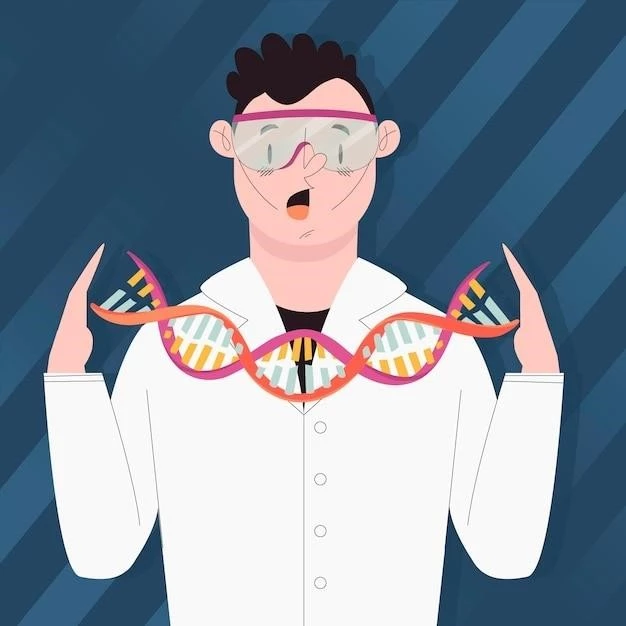Understanding Kallmann Syndrome Type 3, a Rare Genetic Disorder
Introduction to Kallmann Syndrome Type 3
Kallmann Syndrome Type 3 is a rare condition characterized by hypogonadotropic hypogonadism, a hormone deficiency that results in delayed puberty and reproductive system abnormalities. This genetic disorder has an inherited pattern linked to chromosome 3.
Individuals with Kallmann Syndrome Type 3 may experience a lack of sense of smell due to underdeveloped olfactory bulbs in the brain. This syndrome can lead to significant fertility issues and affect both males and females.
Understanding the genetic basis of this syndrome is crucial for accurate diagnosis and appropriate management. Stay informed about the symptoms, effects on the reproductive system, diagnosis, treatment options, and learn how to navigate living with this condition.
Understanding the Genetic Basis

Genetic disorders like Kallmann Syndrome Type 3 are complex conditions that involve specific gene mutations affecting the reproductive system. In this type, the recessive inherited pattern related to chromosome 3 plays a key role.
By delving into the genetic basis of Kallmann Syndrome Type 3, individuals can gain insight into the underlying mechanisms that cause hormone deficiencies and impact puberty and fertility. Consulting with authority genetics can provide valuable information about the condition’s hereditary nature.
Understanding how genes influence the development and function of the reproductive system in this rare genetic disorder can aid in the diagnosis process and potentially uncover targeted treatment options to address the hormone deficiency and associated symptoms.
Symptoms and Effects on the Reproductive System
Kallmann Syndrome Type 3 manifests through a variety of symptoms that primarily affect the reproductive system. Individuals may experience delayed puberty due to hormone deficiency, which can lead to underdeveloped sexual characteristics.
Common symptoms include reduced sense of smell (anosmia) caused by underdeveloped olfactory bulbs. This condition impacts the body’s ability to produce reproductive hormones, resulting in hypogonadotropic hypogonadism.
For both males and females, Kallmann Syndrome Type 3 can present fertility issues due to the disrupted hormone balance. Understanding these symptoms and their effects on the reproductive system is essential for seeking diagnosis and appropriate treatment options.
Diagnosis of Kallmann Syndrome Type 3
Accurate diagnosis of Kallmann Syndrome Type 3 involves a comprehensive evaluation of symptoms, hormone levels, and genetic testing. Medical professionals may conduct olfactory tests to assess the sense of smell and order imaging studies to examine the brain’s structure.
Additionally, hormone tests can reveal deficiencies in reproductive hormones, confirming the presence of hypogonadotropic hypogonadism. Genetic testing plays a crucial role in identifying the inherited pattern associated with chromosome 3.
Seeking a specialist in endocrinology or genetics for a thorough evaluation can lead to a prompt and accurate diagnosis. Understanding the diagnostic process for Kallmann Syndrome Type 3 is vital for initiating treatment options and management strategies.
Treatment Options and Hormone Replacement Therapy
Managing Kallmann Syndrome Type 3 often involves hormone replacement therapy to address the hormone deficiency underlying the condition; For males٫ testosterone replacement can help induce puberty and support reproductive function.
In females, estrogen and progesterone therapy may be prescribed to initiate puberty and regulate menstrual cycles. Monitoring hormone levels is crucial to ensure the effectiveness of treatment and the overall well-being of individuals with this syndrome.
Other treatment options may include fertility treatments for those experiencing challenges with conception. Collaborating with endocrinologists and reproductive specialists can help individuals explore the most suitable treatment strategies tailored to their unique needs.
Living with Kallmann Syndrome Type 3
Adapting to life with Kallmann Syndrome Type 3 requires ongoing management and support to address the challenges associated with hormone deficiency and reproductive system abnormalities. Building a strong healthcare team comprising endocrinologists, genetic counselors, and mental health professionals can provide the necessary guidance and care.
Individuals with this syndrome may benefit from support groups and online communities where they can connect with others facing similar experiences. Open communication with healthcare providers and loved ones is essential in navigating the emotional and physical aspects of living with this rare genetic disorder.
Exploring healthy lifestyle practices and self-care strategies can complement medical treatment and promote overall well-being. Understanding the impact of Kallmann Syndrome Type 3 on daily life is key to empowerment and resilience in managing the condition.
Future Outlook and Research Advances
The future outlook for individuals with Kallmann Syndrome Type 3 shows promise with ongoing research advances aimed at understanding the underlying genetic mechanisms and developing innovative treatment approaches. Continued exploration of gene therapy and reproductive technologies may offer new possibilities for individuals affected by this condition.
Participation in clinical trials and collaborative research studies can contribute to the advancement of knowledge surrounding rare genetic disorders like Kallmann Syndrome Type 3. Keeping abreast of the latest scientific findings and medical advancements allows individuals and healthcare providers to explore emerging treatment modalities and management strategies.
As the field of genetics and reproductive medicine continues to evolve, there is hope for improved diagnosis, treatment outcomes, and overall quality of life for those living with Kallmann Syndrome Type 3. Stay informed about research developments to benefit from future therapeutic options and supportive care.
